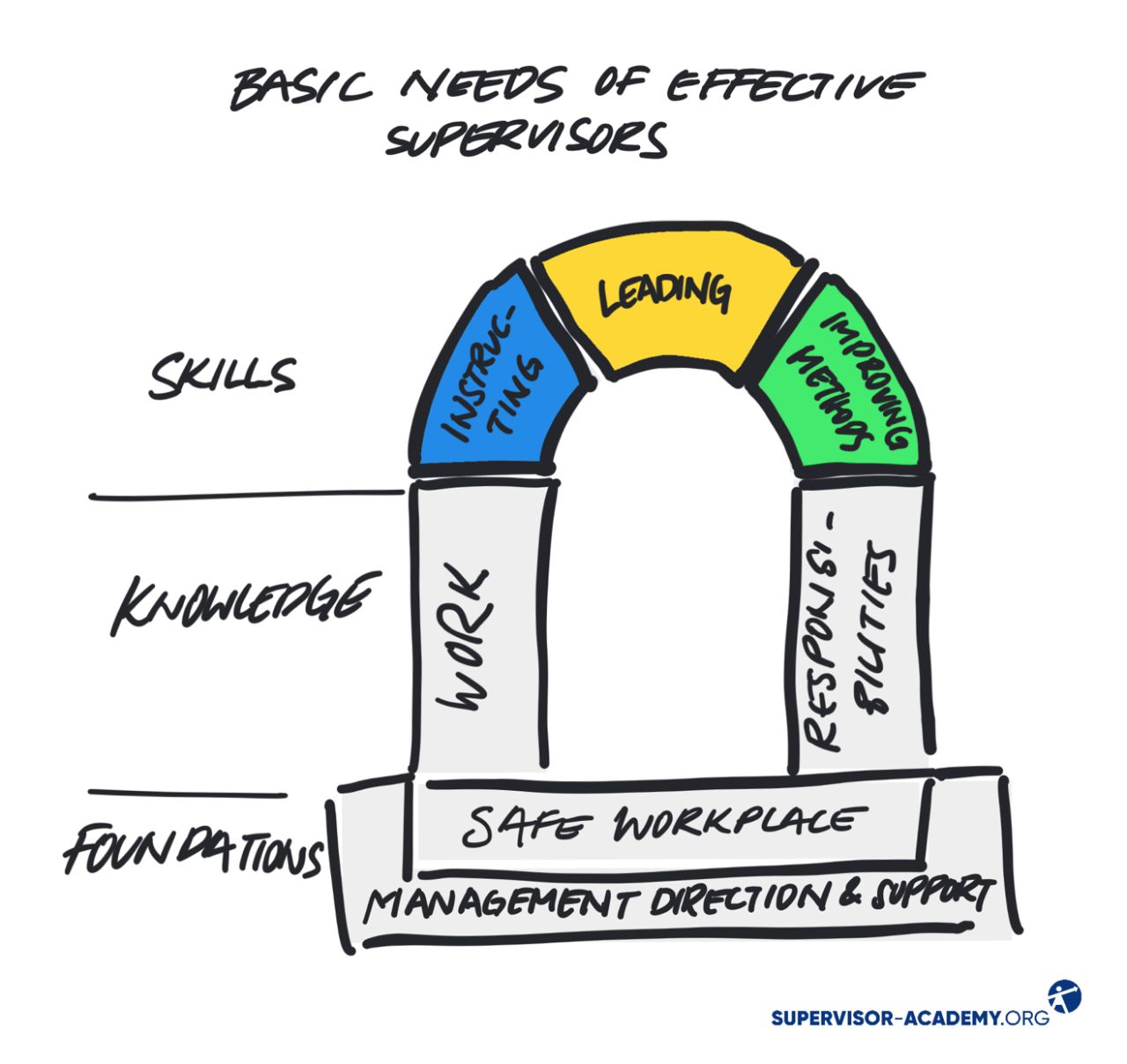Supervisor Skills
The Basic needs to be an effective Supervisor
Supervisor skills are critical to process and team performance. Yet they are often 'too busy' to develop how they lead and improve. This comes at a heavy cost for many organisations.
FOUNDATIONS: The basic needs of supervisors and teams can only be satisfied in a supportive and safe workplace.
1. MANAGEMENT SUPPORT: Managers create the conditions for supervisors to fulfil their roles and business objectives, including an effective learning process that builds well-trained, flexible supervisors through direction, training, coaching and support.
2. HEALTHY & SAFE WORKING ENVIRONMENT: This is a prerequisite for engagement and sustained results. Supervisors skilled at job safety spot and prevent risks in things and people and break the 'chain of causation' of accidents and injuries.
KNOWLEDGE: By clearly defining knowledge of work and responsibilities, leaders ensure everyone understands what is required of them to achieve the business objectives.
3. KNOWLEDGE OF WORK: As a supervisor you need in-depth knowledge of your work and the work of the people you supervise. This enables you to support, collaborate with, coach and challenge your people.
4. KNOWLEDGE OF RESPONSIBILITIES: Understanding
the rules, regulations, values and customs of your organisation is key to fulfilling your role and supporting your people in fulfilling theirs.
SKILLS: Leadership and improvement skills enable supervisors to raise performance in their department. Supervisors that routinely motivate their people and develop their work environment deliver above-average results.
5. SKILL IN IMPROVING METHODS enables supervisors to use materials, machines and people more effectively. With this skill they are able to study each job in detail and improve it by eliminating, combining, rearranging and simplifying its details. This skill provides a strong foundation for continuous improvement.
6. SKILL IN INSTRUCTING enables supervisors to develop a well trained and flexible workforce. By applying this skill, supervisors achieve the required level of quality and service, improved output, fewer accidents, and better process stability.
7. SKILL IN LEADING improves supervisors’ ability at working with people and obtaining their co-operation. This skill, when applied daily, enables you as the supervisor to prevent many people problems from arising and solve the ones that do arise. Skill in Leading is the keystone of the gateway, holding it together and enabling supervisors to apply their knowledge and skills to get results through people.
The TWI J Programs build foundational skills and habits that enable other improvement, learning and management methods. They are a strong starting point for developing great people that deliver great results.

